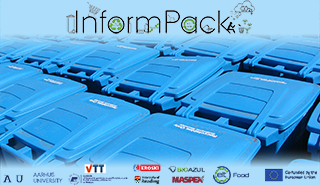Consumer Confusion Continues to Hinder Recycling Efforts, Study Finds
A new survey of 2,000 European consumers reveals persistent confusion around recycling food packaging, despite sustainability efforts by brands.
The InformPack project is a collaboration between Aarhus University, University of Reading and other European industry partners and research institutes, identified key themes across 5 additional countries, during the past year: Denmark, Finland, France, Germany and Italy.
Key findings
Excessive packaging drives consumer choices
Shoppers rank excess packaging as a top concern influencing purchasing selections, especially for fresh fruits and vegetables. Many seek less or zero packaging.
Recycling symbols still mystify many consumers
Consumers struggle to decipher symbols and separate materials for recycling. They desire simpler communication, such as videos and infographics, to boost recycling know-how.
Home to on-the-go: Disposal issues
While earlier surveys found more recycling struggles at home, 2023 results show on-the-go challenges are now equally pressing, as public recycling bins remain scarce.
Country specific factors complicate efforts
Consumers in Germany and Denmark decry excessive packaging for fresh goods and baked items. But in France and Finland, people care most about fruit and vegetable packaging waste. Italians cite sustainable packaging cost burdens as a barrier.
“Consumers worldwide are seeking to make more sustainable choices, but they still encounter everyday barriers with recycling and decoding packaging labels,” said lead researcher Dr Stella Lignou. “We must advance public guidance through preferred formats, such as videos, to achieve real behavioural shifts.”
The InformPack project is funded by the European Institute of Innovation and Technology (EIT) Food programme, to enable culture shift, around sustainable food packaging, across Europe.

